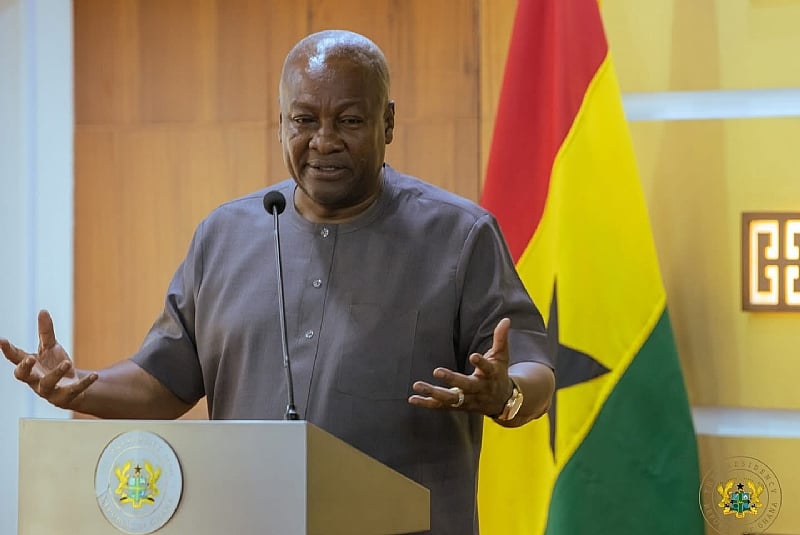The call for reparations for the historical injustices of slavery, colonialism, and neo-colonialism has resonated through the corridors of global discourse for decades, gaining significant momentum in recent years. This call for restorative justice is not merely a demand for financial compensation, but a multifaceted pursuit of acknowledgment, atonement, and concrete actions to address the lingering wounds of these exploitative systems. John Dramani Mahama, former President of Ghana and designated African Union Champion for Reparations, has emerged as a prominent voice in this movement, urging a unified African front in demanding justice and redress. His call for collective action underscores the profound and enduring impact of these historical injustices on the African continent and its diaspora. The year 2025, declared by the African Union as the “Year for Justice for Africans and People of African Descent Through Reparations,” serves as a focal point for this burgeoning movement, aiming to galvanize international attention and action.
Mahama’s televised address on African Union Day in 2025 articulated the comprehensive nature of the reparations sought. He emphasized that while financial compensation is a crucial component, true reparatory justice encompasses a much broader spectrum of measures. A key element is the formal and unequivocal acknowledgment of the wrongs committed, culminating in official apologies from the nations and institutions that orchestrated and profited from these historical injustices. This acknowledgment serves as a foundation for healing and reconciliation, demonstrating a genuine commitment to addressing the past and preventing its recurrence. Beyond apologies, Mahama stressed the need for meaningful dialogue and sustained advocacy to ensure that the impact of these historical transgressions is fully understood and addressed. This dialogue must involve not only the nations and institutions responsible but also the descendants of those who suffered, fostering a collaborative approach to rectifying the past and building a more equitable future.
The scope of reparations, as envisioned by Mahama and other advocates, extends far beyond mere financial payments. It encompasses a range of restorative measures designed to address the multifaceted harms inflicted by slavery, colonialism, and neo-colonialism. Debt cancellation, for instance, is a crucial component, recognizing that many African nations are burdened by debts incurred during colonial rule and its aftermath, hindering their development and perpetuating economic inequalities. Support for sustainable development initiatives is another vital aspect, providing resources and capacity-building to empower African nations to chart their own economic and social progress. The return of stolen cultural artifacts, often symbols of national heritage and identity, is a critical element of cultural restoration, rectifying the plunder that accompanied colonial rule. Investment in education, particularly in areas relevant to African history and culture, plays a pivotal role in empowering future generations and ensuring that the narratives of slavery, colonialism, and neo-colonialism are accurately told and understood.
Mahama’s call for unity highlights the importance of a cohesive African approach in the pursuit of reparations. A unified front amplifies the collective voice of the continent, demonstrating the shared experience and enduring impact of these historical injustices. This unified stance also serves as a powerful counterpoint to any attempts to minimize or dismiss the claims for reparations. By presenting a collective front, African nations can exert greater pressure on the international community to acknowledge and address the historical wrongs committed. This unity also facilitates the sharing of best practices and strategies for pursuing reparations, fostering a collaborative environment where nations can learn from each other’s experiences and strengthen their collective efforts.
Beyond governmental action, Mahama’s appeal extends to a broader range of stakeholders, including youth groups, civil society organizations, and the African diaspora. The active involvement of these groups is crucial to maintaining momentum and ensuring that the reparations movement remains vibrant and inclusive. Youth groups, representing the future generations most impacted by the legacy of historical injustices, bring energy and fresh perspectives to the movement. Civil society organizations, often deeply rooted in local communities, play a crucial role in mobilizing grassroots support and advocating for reparations at the national and international levels. The African diaspora, comprising individuals of African descent residing across the globe, represents a powerful force for change, bringing their diverse experiences and resources to bear on the reparations movement. Their global reach allows them to engage with international institutions and governments, broadening the scope of the reparations campaign.
The pursuit of reparations for slavery, colonialism, and neo-colonialism is not simply about rectifying past wrongs; it is about building a more just and equitable future. By acknowledging and addressing the lingering impact of these historical injustices, the international community can pave the way for a future where all nations have equal opportunities for development and prosperity. The multifaceted approach advocated by Mahama, encompassing apologies, financial compensation, debt cancellation, sustainable development support, cultural restoration, and educational investment, offers a comprehensive framework for achieving this goal. The unified African front, coupled with the active participation of youth groups, civil society organizations, and the diaspora, provides a powerful impetus for change, ensuring that the call for reparations continues to resonate and ultimately leads to meaningful action and transformative change. The “Year for Justice for Africans and People of African Descent Through Reparations” in 2025 represents a critical juncture in this ongoing struggle, offering a platform for renewed focus and intensified efforts to achieve reparatory justice.














